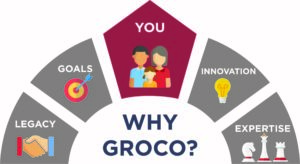7 Tax Tips for Starting Your Own Business
7 Tax Tips for Starting Your Own Business
Have you ever considered starting your own business? According to a recent survey, the rates of early-stage entrepreneurial activity surged in 2011, jumping nearly 60% in the U.S. More than 12% of U.S. adults reported starting a business or running new businesses last year. This is an increase of 4% from 2010. [1] In our current economic situation, many are turning to entrepreneurship. To help you get started, we have compiled a list of seven tax tips.
1. Determine the Legal Structure of Your Business
First, you must determine the type of business you are going to establish. The most common entities are a Sole Proprietorship, Partnership, Corporation, S Corporation or a Limited Liability Company (LLC). Consider the legal and tax implications of each type. This is important when it’s time to file your tax return, as the type of business will determine the tax form you will use.
2. Know Your Business Taxes
Depending on the type business that you establish, it will also determine the type of taxes you will pay. The most common types include income tax, self-employment tax, employment tax and excise tax.
3. Determine Your Tax Year
You will need to determine if your business will run on a calendar year or a fiscal year. A calendar year begins on January 1st and ends on December 31st. A fiscal year is 12 consecutive months ending on the last day of any month, except December. This is important, as it will determine when you file your tax return.
4. Obtain an Employer Identification Number
To identify a business for tax purposes, you typically need to obtain an Employer Identification Number (EIN), also known as a Federal Tax Identification Number. You can apply for this online at irs.gov. Be sure to check with your state to determine if you need a state number or charter.
5. Determine Your Accounting Method
There are two different accounting methods you can use when running a business. The first type is Cash Accounting. This method records accounting events when they become tangible. The second type, Accrual Accounting method records accounting events in real time, or as they happen. Whichever method you choose, remember that you must be consistent.
6. Register a Business Name
Register your business name with your state government. You will need to do this if you choose to name your business something other than your own personal name. Not all states require the registering of DBAs, so check if your state does. [2]
7. Keep Good Records
To help tax time go smoothly, keep good records. Keep a detailed record of all income and expenses. This will help keep track of deductible expenses on your tax return. Keeping good records will also help you monitor the progress of your business and provide a financial overview of your company. Good record keeping also helps when facing an IRS audit.
Sources:
[1] Bloomberg Businessweek, http://www.businessweek.com/small-business/startup-rates-surge-in-the-us-and-abroad-01202012.html
[2] SBA.gov, http://www.sba.gov/content/register-your-fictitious-or-doing-business-dba-name
[3] IRS.gov
—————————————————————————————————————————————————————————————————————
We hope you found this article about “7 Tax Tips for Starting Your Own Business” helpful. If you have questions or need expert tax or family office advice that’s refreshingly objective (we never sell investments), please contact us or visit our Family office page or our website at www.GROCO.com. Unfortunately, we no longer give advice to other tax professionals gratis.
To receive our free newsletter, contact us here.
Subscribe our YouTube Channel for more updates.

Alan Olsen, is the Host of the American Dreams Show and the Managing Partner of GROCO.com. GROCO is a premier family office and tax advisory firm located in the San Francisco Bay area serving clients all over the world.
Alan L. Olsen, CPA, Wikipedia Bio

GROCO.com is a proud sponsor of The American Dreams Show.

The American Dreams show was the brainchild of Alan Olsen, CPA, MBA. It was originally created to fill a specific need; often inexperienced entrepreneurs lacked basic information about raising capital and how to successfully start a business.
Alan sincerely wanted to respond to the many requests from aspiring entrepreneurs asking for the information and introductions they needed. But he had to find a way to help in which his venture capital clients and friends would not mind.
The American Dreams show became the solution, first as a radio show and now with YouTube videos as well. Always respectful of interview guest’s time, he’s able to give access to individuals information and inspiration previously inaccessible to the first-time entrepreneurs who need it most.
They can listen to venture capitalists and successful business people explain first-hand, how they got to where they are, how to start a company, how to overcome challenges, how they see the future evolving, opportunities, work-life balance and so much more..
American Dreams discusses many topics from some of the world’s most successful individuals about their secrets to life’s success. Topics from guest have included:
Creating purpose in life / Building a foundation for their life / Solving problems / Finding fulfillment through philanthropy and service / Becoming self-reliant / Enhancing effective leadership / Balancing family and work…

MyPaths.com (Also sponsored by GROCO) provides free access to content and world-class entrepreneurs, influencers and thought leaders’ personal success stories. To help you find your path in life to true, sustainable success & happiness. It’s mission statement:
In an increasingly complex and difficult world, we hope to help you find your personal path in life and build a strong foundation by learning how others found success and happiness. True and sustainable success and happiness are different for each one of us but possible, often despite significant challenges.
Our mission at MyPaths.com is to provide resources and firsthand accounts of how others found their paths in life, so you can do the same.
Top Ten Real Estate Tax Breaks
Here’s a look at the Top 10 Real Estate Tax Breaks for the homeowner/investor. Real Estate Tips 1-3 1. Mortgage Loan Interest: Deductions reduce your taxable income against which your taxes due are calculated.2. Home Improvement Loan Interest: You can deduct all the interest on a home improvement loan provided the work is a “capital improvement”…
GROCO’s Mission Statement
GROCO’s Mission Statement About GROCO At Greenstein, Rogoff, Olsen & Co., we strive to deliver the best service to our clients. We are successful because we stay true to our vision, work hard toward our mission, and employ a series of core values. Our Vision is to be the most trusted advisors in the Bay Area serving…
Choosing a Real Estate Investment Market
Choosing a Real Estate Investment Market OK, everyone’s heard the old saying that “Location, Location, Location” is the most important factor when buying real estate right? But what does that really mean? What about a location should you know before buying a property for long term rental? Buying because the property’s in your own home…
Shareholders Pleased as Musk Decides Against Taking Tesla Private
The shareholders are pleased that Elon Musk decided against taking tesla private in what was sure to be a controversial move. Not wholly unlike several bold and surprising moves the worlds most famous entrepreneur has done in recent years. Tesla’s CEO Elon Musk recently created quite a stir after suggesting he was considering taking his…




